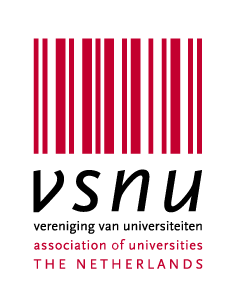By Jan Velterop
When I was still at Springer – which is quite a while ago now – I remember proposing that the company not just offer the universities of The Netherlands, as well as the Max Planck Society in Germany, the then usual “BigDeal”. Instead, I argued, it should be an all-encompassing deal, with access to all the journals published by Springer, and open access for all authors at Dutch universities or Max Planck institutes in the Springer owned journals, at no extra costs such as Article Processing Charges (APCs). Shortly after, I left Springer (not as a result, I might add), but I believe a prototype of such a deal was offered and agreed. I say prototype, because modifications were clearly made to the initial proposal I put forward, to arrive at the collective deal with the Dutch universities, who had come together in the VSNU (the Association of Universities in The Netherlands), which was signed at the end of last year. The deal may have been modified, but the central idea of a national deal that encompasses access as well as open access publishing for authors at the Dutch universities still stands. The main difference being, as I understand it, that open access without further APCs authors is not offered for journals published, but not owned, by Springer, and for the BMC journals (which were not yet part of the Springer portfolio when I left). That is a pity, but let us celebrate the progress and not dwell on the flaws at this stage.
With other main publishers, similar – albeit not identical – deals have been done, all presenting significant progress towards open access. The most recent agreement was with Sage, and a few months earlier, a contract was signed with Wiley.
In that light, it is quite understandable that the Dutch universities are very disappointed, to say the least, that negotiations with Elsevier are stalling. After all, if other large publishers can do such deals, what is it that should make it impossible for Elsevier? At the end of this year, the multi-year so-called BigDeal with Elsevier expires, but so far, no progress has been made with negotiations to succeed that deal. In fact, the VSNU speaks of a deadlock.
In their frustration, VNSU members have called for a boycott of Elsevier journals, and have called upon editors, editorial board members, peer-reviewers, and ultimately authors, not to lend their services or to contribute to Elsevier journals anymore. That presents problems for researchers, of course, as Elsevier does publish a fair number of journals that enjoy, deservedly or not, prestige in their communities, and editors and editorial board members are understandably loath to give up their association with those journals.
I’m not a great fan of boycotts, simply because they rarely work. As boycotts, at least. What they will do, though, is draw urgent attention to an issue. More as a psychological means to exert pressure than as an actual way to inflict damage. Besides, inflicting damage – though it may be a side-effect – cannot be the goal in this case. The goal is to achieve an agreement with a large and important publisher that guarantees more open access and better value for money. Taxpayers’ money, after all, in the case of the vast majority of scientific papers that report on the results of research grants paid out of public funds.
It remains to be seen what will happen. Traditionally, it was just librarians who negotiated with publishers. But librarians had very little clout. If they tried to play hardball, which might possibly have resulted in temporary suspension of subscriptions, they faced major criticism from researchers, faculty, students, superiors alike, and, of course, from publishers. Operating together, joining forces in the Association of Universities in The Netherlands, and taking the negotiations to the level of vice-chancellors rather than leaving it with librarians, greatly enhances the universities’ negotiating power. I do hope that the VNSU stay the course, and achieve a comprehensive deal that does justice to the need for open access in scientific and scholarly research, even if it is a staggered approach at this stage. After all, if Springer, Wiley, and Sage can agree to significant steps towards open access, Elsevier’s increasingly isolated position, which is really about trying to stem the tide of open access, is much weaker than they now seem to think it is.
And if the Dutch universities succeed, the message it sends to other countries will be very powerful, indeed.
References
Dutch Universities and SAGE reach agreement on open access. Association of universities in the Netherlands (VSNU). 2015. Available from: http://www.vsnu.nl/en_GB/news-items.html/nieuwsbericht/218
Dutch universities start their Elsevier boycott plan. Univers. 2015. Available from: http://universonline.nl/2015/07/02/dutch-universities-start-their-elsevier-boycott-plan
Elsevier open access negotiations in deadlock. Association of universities in the Netherlands (VSNU). 2015. Available from: http://www.vsnu.nl/files/documents/Publications/Factsheets/33_Elsevieropenaccessnegotioationsindeadlock.pdf
Springer and universities take key step towards open access. Association of universities in the Netherlands (VSNU). 2014. Available from: http://www.vsnu.nl/en_GB/news-items.html/nieuwsbericht/175
Wiley and Dutch universities take step towards open access. Association of universities in the Netherlands (VSNU). 2015. Available from: http://www.vsnu.nl/en_GB/news-items.html/nieuwsbericht/217
About Jan Velterop
 Jan Velterop (1949), marine geophysicist who became a science publisher in the mid-1970s. He started his publishing career at Elsevier in Amsterdam. in 1990 he became director of a Dutch newspaper, but returned to international science publishing in 1993 at Academic Press in London, where he developed the first country-wide deal that gave electronic access to all AP journals to all institutes of higher education in the United Kingdom (later known as the BigDeal). He next joined Nature as director, but moved quickly on to help get BioMed Central off the ground. He participated in the Budapest Open Access Initiative. In 2005 he joined Springer, based in the UK as Director of Open Access. In 2008 he left to help further develop semantic approaches to accelerate scientific discovery. He is an active advocate of BOAI-compliant open access and of the use of microattribution, the hallmark of so-called “nanopublications”. He published several articles on both topics.
Jan Velterop (1949), marine geophysicist who became a science publisher in the mid-1970s. He started his publishing career at Elsevier in Amsterdam. in 1990 he became director of a Dutch newspaper, but returned to international science publishing in 1993 at Academic Press in London, where he developed the first country-wide deal that gave electronic access to all AP journals to all institutes of higher education in the United Kingdom (later known as the BigDeal). He next joined Nature as director, but moved quickly on to help get BioMed Central off the ground. He participated in the Budapest Open Access Initiative. In 2005 he joined Springer, based in the UK as Director of Open Access. In 2008 he left to help further develop semantic approaches to accelerate scientific discovery. He is an active advocate of BOAI-compliant open access and of the use of microattribution, the hallmark of so-called “nanopublications”. He published several articles on both topics.
Como citar este post [ISO 690/2010]:


















Pingback: Niederländische Universitäten starten Elsevier-Boykott | ViFa Benelux-Blog
Pingback: Open Access Prioriät der EU-Ratspräsidentschaft 2016 | wisspub.net
Pingback: Open Access Priorität der EU-Ratspräsidentschaft 2016 | wisspub.net